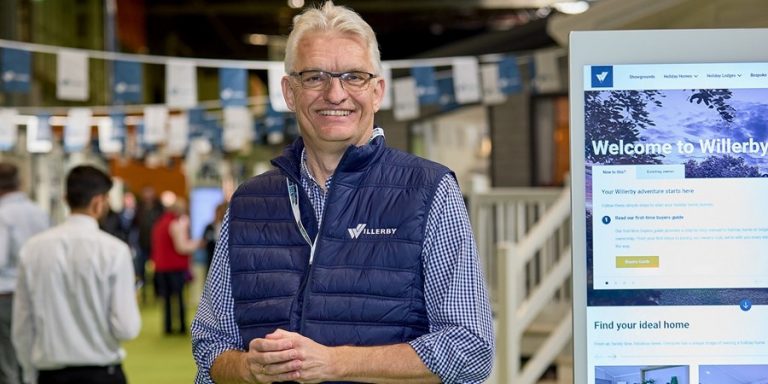Doncaster man claimed 20,000 illegal cigarettes were for ‘personal use’
Government pumps millions into council areas to boost businesses and community projects
“This confirmed spending will allow local authorities to deliver on their plans to level up businesses and communities in rural areas from today, in line with their residents’ priorities.”
Country Land and Business President Mark Tufnell said: “The rural economy is 19% less productive than the national average, but reducing this gap could add up to £43 billion to the economy. This funding is an important step in unlocking the vast potential of rural businesses, and will give startups as well as existing enterprises the support they need to grow.
“We strongly encourage Local Authorities to work closely with rural entrepreneurs to maximise the opportunities the Rural England Prosperity Fund presents, identifying every possible opportunity to generate economic growth – creating good jobs and strengthening our communities in the process.”
She said the money could be spent on projects to support agricultural businesses looking to expand their remit, and rural businesses looking to launch or grow their products and services. Allocations in Yorkshire and Lincolnshire include:- North Yorkshire: £5.4m
- South Yorkshire: £1.4m
- West Yorkshire: £2.5m
- East Riding: £1.8m
- North Lincolnshire £789,000
- York: £400,000
- West Lindsey: £800,000
- East Lindsey: £1.8m
- South Holland: £700,000
- South Kesteven: £540,000
University gets involved in robotics programme to counter lack of seasonal labour
Willerby reports best results in company’s 77-year history
Buoyed by a structural market change in favour of holidays and short breaks in the UK, holiday homes builder Willerby has posted the best results in the company’s 77-year history, with revenues above £200m for the first time.
In the company’s latest accounts, for the year to October 1st, 2022, Willerby recorded turnover of £217m, up 67% from £129.9m the year before. Operating profits rocketed to £15.1m, a fourfold increase on £3m the previous year, and adjusted EBITDA (earnings before interest, taxes, depreciation and amortisation) reached £17.2m, growth of 224% on £5.3m the year before. The business also ended the financial year with a cash balance of £37.6m, up by £12.1m (47%) year on year. Willerby is the UK’s largest manufacturer of static caravans and lodges – building a third of new units destined for holiday parks – as well as operating a growing residential park homes brand, Willerby Bespoke. Launched in 2018, Willerby Bespoke matured in 2022 to become a profit contributor to the overall business. CEO Peter Munk said: “There’s no doubt there has been a structural change in the market since COVID, which we believe will benefit our business and industry over the long term. “The UK has some of the world’s most stunning locations, currently being showcased to millions of people in Sir David Attenborough’s beautiful BBC series Wild Isles. The appeal of the British countryside and coast has never been greater. “We’ve also seen very significant institutional investment into the staycation market, especially in the holiday parks sector, and in upgrading facilities at sites across the country. “That has all fed through to a sustained surge in holiday home ownership and bookings at holiday parks which has, in turn, generated very strong demand for our static caravans, lodges and residential park homes. “Our order book is very strong and we’re now setting out detailed production plans for 2024, to meet the robust demand for our models. “At Willerby, we’re all about our people, products and place – our facilities in Hull, the local community we support and our leading role in our industry, which is rooted in our region. “Despite the unprecedented challenges we have faced in recent times, from COVID to inflationary pressures, we’re in an exceptionally strong position. We’re at the forefront of a vibrant and growing sector and the investments we’re making are ensuring we’re well placed for sustained growth.” Willerby’s full-year results are particularly remarkable as performance in the first half of the year was impacted by pandemic-driven interruptions to raw material supplies and COVID-related staff absences. The ending of COVID restrictions in February 2022 enabled Willerby to return to normal operations, resulting in a bumper second half of the year. Willerby now has a 1,150-strong workforce and pumped £35m into the local economy in wages and salaries alone during the financial year. All Willerby employees are paid a minimum of the Real Living Wage and a new and improved staff bonus scheme introduced during the year meant every staff member received a performance bonus. Willerby CFO Sue Allan said: “Our results in the previous two business years were severely impacted by COVID and the latest full year was very much a game of two halves. “During the first half of the year, performance continued to be hindered by the impact of COVID restrictions on our own operations and our suppliers. However, once those restrictions ended in late February we were able to move forward and go from strength to strength. “We’re particularly pleased that employees in every part of the business have shared in this success. It’s a guiding principle of the business that everybody contributes to the company’s success and also benefits from it. “We’re also proud of the commitments we continue to make to R&D, training and development, and skills. These are investments in the business and also the local community and economy that we’re an important part of.”











